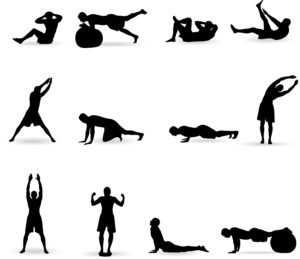HEALTHY LIVING
Stinky Feet? Here’s How To Avoid It
Published
5 months agoon

Feet may get a bad rap, but the real culprit behind their odour isn’t the feet themselves. While stinky feet can certainly be embarrassing, especially when taking off your shoes in public, the actual source of the odour might surprise you. It’s not the feet themselves, but rather the tiny residents living on them—bacteria.
These microscopic roommates aren’t inherently bad, but when they feast on dead skin cells and sweat in warm, moist environments like your shoes and socks, they produce an unpleasant byproduct: acid. And like any other waste disposal, this acid has a distinct, often unwelcome, odour.
But don’t despair. While not a medical problem, foot odour can be unpleasant. The good news is that researchers have discovered effective ways to combat these odour-causing germs and keep your feet (and their companions) smelling fresh.
How do I get my feet to stop stinking?
As the temperature rises, so does the chance of sweaty feet, especially if you’re wearing closed-toe shoes. This combination of hot weather and sweaty feet can, unfortunately, lead to unpleasant foot odours and even infections. But don’t worry…
There are easy things you can incorporate into your daily routine to keep your feet clean, dry, and smelling fresh. So ditch the fear of taking off your shoes in public and enjoy the warm weather with these simple tips.
Here are some tips to get rid of stinky feet:
1. Soak your feet
Forget just giving your feet a quick rinse while showering. For truly clean and happy feet, consider taking some extra time for a luxurious soak. Two great options are vinegar and Epsom salt.

Epsom salt magic: Dissolve half a cup of Epsom salt in a warm tub or large bowl of water. Relax and soak your feet for 10–20 minutes. This creates an environment less welcoming to bacteria, helping keep your feet feeling fresh and healthy.
Vinegar power: Looking for an alternative? Add some vinegar (white or apple cider, your choice) to a warm tub or large bowl of water and soak for 15-20 minutes once a week. Vinegar also helps make your skin less friendly to bacteria but be sure to skip this method if you have any open sores, cuts, or scratches, as it can sting.
Give your feet a little extra TLC with these simple soaks and enjoy the benefits of fresher, more comfortable feet.
2. Keep your feet dry
Keeping your feet dry is key to battling bad foot odour. Here’s why: Bacteria love moisture, and the stink we associate with sweaty feet comes from these tiny critters multiplying happily in a damp environment.

Pack an extra pair of socks in your bag and take a minute to swap them out during the day, especially when the weather heats up. Opting for cotton socks and shoes made from natural materials like leather also helps, as they allow your feet to breathe and prevent moisture buildup.
So, after that refreshing bath, soak, or swim, be sure to give your feet some extra TLC by drying them thoroughly. Remember, dry feet = fewer bacteria = happier feet and noses!
3. Disinfect your shoes
Ever open your closet only to be greeted by the unpleasant surprise of stinky shoes you haven’t worn in a while? Don’t worry! Throwing them away isn’t an option. You can actually revive them with a handy disinfectant spray and some sunshine.

Here’s what you do: Grab a kitchen spray with ethanol and other sanitising ingredients, which work wonders at killing odour-causing bacteria. Take out the shoe’s insole and give it a good spritz with the spray. Then, let it bask in the sunshine for 24 hours before putting it back in the shoe. The sun’s natural germ-fighting power will work its magic too, leaving your shoes smelling fresh and ready to wear again.
4. Use powder
It can be a drag to have sweaty feet, but don’t worry; there are ways to tackle the moisture and keep your feet feeling fresh. Here are a couple of options:
:max_bytes(150000):strip_icc()/removing-shoe-odors-with-baking-soda-1900467-04-26a923c3c3684ba48320f901c4a2a9f3.jpg)
Sprinkle magic: For a simple solution, try sprinkling a little cornflour or even regular underarm antiperspirant into your shoes before slipping them on. These powders can help absorb moisture and keep your feet drier throughout the day.
Doctor’s help: If the sprinkling trick isn’t doing the job, don’t hesitate to visit your doctor! They can assess your situation and, if needed, prescribe medication specifically designed to manage foot moisture, leaving you feeling more comfortable and confident.
Remember, happy feet are healthy feet, and they start with feeling dry and fresh. Don’t be shy about exploring different options and finding what works best for you.
If you enjoyed this article, also read this.
You may like
-


Twerking: 5 Surprising Benefits Of Shaking It Out
-


10 Reasons Why Working Out Is Good For You
-


8 Ways To Escape Being Pressured By Other People’s Wedding
-


7 Herbs That Heal Various Organs In your Body
-


Banky W Elated After Undergoing 4th Successful Surgery For Skin Cancer
-


What Your Handshake Says About Your Health

Fibroids, non-cancerous growths in the uterus, can cause a variety of uncomfortable symptoms like heavy bleeding, pelvic pain, and frequent urination. While surgery can be an effective way to remove fibroids and alleviate these symptoms, there’s a chance they might return in some women. This can be frustrating and raise concerns about future treatment options.
Let’s delve into the reasons why fibroids might regrow after surgery and what you can do about it.
Understanding Fibroid Formation
Before we explore regrowth, it’s important to understand how fibroids develop in the first place. The exact cause remains unknown, but certain factors are believed to play a role:
- Hormones: Estrogen and progesterone are hormones that stimulate the growth of the uterine lining during a menstrual cycle. Fibroids are more likely to develop during childbearing years when these hormones are at their peak.
- Genetics: If a close relative (mother, sister) has had fibroids, you have a higher risk of developing them as well.
- Other factors: Obesity, Vitamin D deficiency, and early menstruation might also be contributing factors.
Why Do Fibroids Regrow After Surgery?
There isn’t a single answer to this question. Here are some reasons why fibroids might reappear after surgery:
-
Microscopic remnants: During surgery, the goal is to remove all fibroid tissue. However, microscopic fibroid cells might remain undetected and can potentially grow into new fibroids over time. The likelihood of this happening increases with the number of fibroids present initially and the complexity of the surgery.
-
Hormonal influence: Even after fibroid removal, the underlying hormonal environment that promotes fibroid growth might still be present. Estrogen dominance or fluctuations in hormone levels can trigger the growth of new fibroids.
-
Unknown underlying cause: In some cases, the exact reason why fibroids develop is unknown. Without addressing the root cause, new fibroids might form despite surgery.

Fibroids Surgery and Regrowth Risk
The type of surgery performed for fibroid removal can influence the risk of regrowth:
-
Myomectomy: This surgery removes the fibroids while preserving the uterus. It’s a good option for women who want to get pregnant in the future. However, there’s a higher chance of fibroids returning compared to a hysterectomy, as some microscopic fibroid cells might remain.
-
Hysterectomy: This surgery removes the entire uterus, eliminating the source of fibroid growth altogether. The risk of regrowth is very low with a hysterectomy, but it’s not an option for women who desire future pregnancies.
Reducing the Risk of Regrowth
While there’s no guaranteed way to prevent fibroid regrowth after surgery, some strategies might help minimize the risk:
-
Maintaining a healthy weight: Obesity is linked to an increased risk of fibroids. Losing weight and maintaining a healthy body mass index (BMI) can help regulate hormones and potentially reduce the risk of new fibroid development.
-
Hormonal management: If hormonal factors contribute to your fibroids, your doctor might recommend medications like GnRH agonists or birth control pills to regulate hormone levels and potentially reduce the risk of regrowth.
-
Minimally invasive surgery: When possible, opting for minimally invasive surgical techniques like laparoscopic myomectomy might decrease the risk of microscopic leftover cells compared to traditional open surgeries.
What to Do if You Experience Regrowth:
If you experience symptoms that suggest fibroid regrowth after surgery, talk to your doctor. They can perform a pelvic exam, ultrasound, or MRI scan to confirm the presence of new fibroids.
Based on the size, location, and severity of your symptoms, your doctor will discuss treatment options which might include:
-
Monitoring: If the fibroids are small and not causing significant symptoms, your doctor might recommend monitoring them through regular checkups to see if they grow.
-
Medication: Hormone therapy or medications that shrink fibroids might be options depending on your individual situation.
-
Repeat Surgery: In some cases, another surgery might be necessary to remove the new fibroids. The type of surgery will depend on various factors like your medical history and the location of the new fibroids.
-
Other Procedures: Procedures like uterine artery embolization (UAE) that block blood flow to fibroids, or ablation techniques that destroy fibroid tissue with heat or radiofrequency energy, might be considered depending on the specific situation.
Living with Fibroids Before and After Surgery
Fibroids are a common condition, and you’re not alone. Remember, even if fibroids return after surgery, there are treatment options available. Open communication with your doctor is key to managing fibroids and living a healthy life.
Get more updates here.
HEALTHY LIVING
Twerking: 5 Surprising Benefits Of Shaking It Out
Published
5 days agoon
July 21, 2024
Twerking. The word itself might conjure up images of energetic dance moves or music videos. But did you know that twerking offers a surprising range of benefits beyond just being a fun way to move your body?
This dynamic dance style, which often entails hip shakes, squats, and isolations, can actually be a powerful tool for improving your physical and mental well-being.
Here are 5 surprising benefits of twerking that might make you reconsider this popular dance move:
1. Build Strength and Tone Muscles
Twerking isn’t just about shaking – it’s a workout in disguise! Here’s how it breaks down:
-
Core engagement: Many twerking moves require you to tighten your abdominal muscles to maintain control and stability. This constant core engagement strengthens your core muscles, leading to better posture and improved balance. Think of it as a dynamic plank that works your abs from multiple angles.
-
Lower body last: Squats, lunges, and hip thrusts are all common twerking elements. These moves are like a targeted workout for your glutes, hamstrings, quads, and calves, sculpting and toning your lower body. The fast, repetitive nature of twerking intensifies the effect, giving you a sculpted, toned backside.
-
Upper body activation: While the focus is on your core and lower body, twerking also involves arm movements for balance and expression. These movements can help strengthen your arms and shoulders, especially when incorporating arm pops, chest pops, and isolations into your routine.
2. Boost Cardiovascular Health
You think twerking isn’t intense enough to get your heart rate up? Think again! The fast-paced movements and constant body movement can give your cardiovascular system a workout similar to low-impact cardio exercises like brisk walking or jogging. Here’s how it benefits your heart:
-
Increased heart rate: Twerking elevates your heart rate, which is essential for cardiovascular health. This helps improve blood circulation, oxygen delivery to your muscles, and overall fitness. As you get better at twerking and can sustain the moves for longer durations, the intensity increases, further boosting your cardiovascular health.
-
Improved endurance: As you get used to twerking, your stamina will increase. This allows you to dance for longer periods and potentially translates to better endurance in other activities, whether it’s climbing stairs, running errands, or participating in other sports.
-
Calorie burning: Twerking is a dynamic exercise that burns calories. The exact number depends on factors like intensity, duration, and body weight, but it can be a great way to add some calorie-burning fun to your routine. Depending on the intensity of your twerking session, it can burn anywhere from 400 to 600 calories per hour.
3. Enhance Flexibility and Coordination
Twerking requires a good range of motion in your hips, knees, and ankles. It improves flexibility and coordination through:
-
Increased range of motion: The various movements involved in twerking help stretch and lengthen your muscles, increasing your overall flexibility. This improved flexibility can benefit your posture, reduce your risk of injuries, and even improve your performance in other physical activities.
-
Improved coordination: Twerking requires you to coordinate different parts of your body – your core, legs, and arms – all while moving to the rhythm. This improves your overall coordination and body awareness. As you master different twerking moves, the complexity increases, further refining your ability to coordinate your movements.

4. Build Confidence and Self-Esteem
Twerking isn’t just about physical benefits; it can also have a significant impact on your mental well-being. It can boost your confidence and self-esteem with:
-
Body positivity: Learning to twerk and move your body with confidence can be a powerful way to embrace your body and appreciate its unique abilities. Twerking can be a form of self-acceptance, regardless of your body shape or size. As you master the moves and feel comfortable expressing yourself through dance, you develop a newfound appreciation for your body’s capabilities.
-
Stress relief: Getting lost in the rhythm of the music and the joy of movement can be a great way to de-stress and clear your mind. The repetitive nature of twerking can be almost meditative, allowing you to focus on the present moment and let go of daily worries.
-
Empowerment: Twerking can be a form of self-expression and a celebration of your femininity or masculinity. It allows you to own your body and express yourself confidently. Whether you’re dancing alone in your room or letting loose with friends, twerking can be a powerful way to tap into your inner strength and feel empowered.
5. Connect with Others and Have Fun
Twerking isn’t just a solo activity; it can be a fun way to connect with others and enjoy yourselves together. A few ways it can boost your social life are through:
-
Group classes: Join a twerking class. These classes offer a fun and social environment where you can learn new moves, share laughs, and bond with others who share your passion for dance. It’s a great way to meet new people and expand your social circle, all while learning a new skill.
-
Confidence booster: Mastering new twerking skills can be a confidence booster. As you get better at the moves and feel comfortable expressing yourself through dance, you’ll likely feel more comfortable expressing yourself in social situations in general. This newfound confidence can translate to other areas of your life, making you feel more outgoing and willing to put yourself out there.
-
Pure fun: Above all else, twerking is simply fun! It’s a way to let loose, move your body to the rhythm of the music, and forget about your worries for a while. Whether you’re dancing with friends at a party or letting loose in your living room, twerking can be a great way to de-stress, have a good laugh, and simply enjoy yourself.
So next time you hear a song with a great beat, don’t be afraid to shake it out! Twerking can be a surprisingly beneficial addition to your fitness routine, improve your mental well-being, and even become a fun social activity.
Important Note:
Always listen to your body and consult with a doctor before starting any new exercise program, especially if you have any pre-existing health conditions. It’s important to exercise safely and ensure twerking is a healthy addition to your routine.
For more updates, visit here.

The word “workout” can be scary for some people. They might think it’s only for athletes or gym rats, but that’s not true! Working out simply means doing physical activity to stay healthy.
Exercise isn’t just about building muscle and looking good (although that’s a perk too!). It’s a fantastic way to boost your mental well-being and overall health.
The good news is, that exercise isn’t rocket science. It can be as simple as going for a jog or doing some bodyweight exercises at home. There’s no need for a fancy gym membership.
Here’s the best part: studies show that working out is amazing for your body and mind! It can boost your mood, and energy levels, and even help you sleep better.
Ready to give it a try? By now, you should be pumped up about the benefits of working out! Remember, it doesn’t have to be complicated. Start small and find activities you enjoy.

Here are 10 ways working out can become your secret weapon for a happier, healthier you:
1. De-stress champ
Feeling overwhelmed by work deadlines or daily life? Exercise is a natural stress reliever. It helps your body handle pressure by releasing endorphins, feel-good chemicals that leave you feeling relaxed and positive.
Regular workouts can also improve your sleep quality, which is essential for managing stress in the long run.
2. Goal getter
Setting and achieving fitness goals, big or small, is a big confidence booster. Whether you’re aiming for that extra push-up or conquering your first 5K run, achieving your goals gives you a sense of accomplishment that spills over into other areas of your life.
You’ll start believing in your ability to set and crush any challenge you set your mind to.
3. Confidence booster
Exercise can make you feel better about yourself from the inside out. Increased blood flow gives your skin a healthy glow, and feeling strong and fit can help you rock that outfit you love with newfound confidence.
It’s not just about appearance though; exercise can also improve your posture and overall body image, giving you a sense of inner strength.
4. Glowing skin
Exercise is a natural detoxifier for your skin! Sweating helps unclog pores and clear up breakouts, leaving you with a toned and radiant complexion. Regular workouts can also increase collagen production, which keeps your skin looking youthful and supple.
5. Fight cancer with fitness
Studies show regular exercise can significantly reduce your risk of developing various cancers, including breast cancer. Exercise helps maintain a healthy weight, which is a crucial factor in cancer prevention.
It may also boost your immune system, making it better equipped to fight off illness.
6. Sharper mind
Physical activity isn’t just good for your body, it’s a brain booster too! Regular workouts increase the production of cells responsible for memory and learning. So get sweaty, get smart!
Exercise can help improve your focus, concentration, and overall cognitive function, making you sharper and more productive throughout the day.
7. Beat addiction
Struggling with bad habits? Exercise can be a powerful tool for overcoming addiction. It releases dopamine, a brain chemical involved in pleasure, in a healthy way.
Regular workouts can help manage cravings for unhealthy substances and distract you from unhealthy behaviours. Exercise can also improve your mood and energy levels, making you less likely to turn to unhealthy substances for a temporary boost.
8. Sleep like a baby
Exercise can significantly improve your sleep quality. Aim for moderate-intensity workouts 3-4 times a week to fall asleep faster, stay asleep longer, and experience deeper sleep stages.
When you exercise regularly, you’ll feel more tired in a good way, allowing you to drift off to sleep easier and wake up feeling refreshed and energized. Just avoid exercising too close to bedtime, or you might be too energized to wind down.
9. Spice up your sex life
Regular exercise can improve your sex drive, performance, and overall satisfaction. It boosts your physical endurance, muscle tone, and blood flow, all essential for a healthy sex life.
Even low-intensity workouts like brisk walking can make a difference! Exercise can also improve your confidence and body image, which can translate to a more fulfilling sexual experience.
10. Disease fighter
Exercise strengthens your immune system and helps protect your body from various diseases, including cancer. It might even reduce stress hormones that can increase your risk of illness.
Regular exercise can also help you maintain a healthy weight, which reduces the risk of heart disease, diabetes, and other chronic conditions.
So lace up your shoes, hit the gym, or find an activity you enjoy. Your mind and body will thank you for it! You’ll not only feel better physically, but you’ll also experience a boost in mental well-being, confidence, and overall health.
Check out more updates here.
Latest


New Album: KCee Releases Feat. Odumodublvck, Teni, Diamond Platnumz – ‘Mr. Versatile’
KCee has a new album called “Mr. Versatile“. This name shows that KCee is good at doing many different types...


Yemi Alade Releases Her Sixth Album, ‘Rebel Queen’
Yemi Alade has just released a new album called “Rebel Queen“. She is a famous singer from Nigeria, known all...


Ayra Starr Launches Doll Collection
Ayra Starr is a famous singer from Nigeria. She has become very popular in the music world. Many people like...


Musician Khaid Returns To Social Media After Protracted Illness; Unfollows All But Olamide
Khaid, a rising Nigerian music star, has recently returned to social media after a period of absence due to a...


Netflix Subscription Prices Increases In Nigeria For The 2nd Time This Year
Netflix has significantly increased its subscription fees for Nigerian users. This marks the second time the popular streaming platform has...


BBNaija 9: You Must Know These 4 Things Before The New Season Of Starts On Sunday
Africa’s most popular reality TV show, Big Brother Naija, is about to launch its ninth season (BBNaija 9) in a...


Burna Boy To Mark The 5th Anniversary Of ‘African Giant’ With YouTube Special
Burna Boy is a prominent African musician who has achieved global superstar status through his award-winning music and record-breaking concerts....


Babatunde Apalowo’s ‘Londoner’ Wins Best Fiction Feature Prize At Durban FilmMart
“Londoner” is an autobiographical film that tells the story of Ayo, a Nigerian bank manager who moves to London to...


Davido Partners With GAC Motors In Multi-Million Deal
David Adeleke, who is famously known as Davido, has entered into a new business agreement with GAC Motors, a well-known...


KCee Teases Release Of New Album, “Mr. Versatile”
KCee is a well-known Nigerian musician who has been making popular music for almost 20 years. He has managed to...
-Ad-




10 Reasons Why Working Out Is Good For You

New Music: BoyPee, Hyce & Brown Joel Feat. Davido – Ogechi

10 Lace Gown Styles To Steal The Show At A Wedding

Why Women Break Up With Men They Are Still In Love With

Shakira To Perform At 2024 Copa América Final On Sunday

My Wedding Dress Is The Most Comfortable Dress I’ve Ever Worn – Sharon Ooja Appreciates Designer Veekee James

Why ‘Isiagu’ Styles Are Becoming Norm At Igbo Ceremonies

Why Do Women Live Longer Than Men? See Reasons Behind The Longevity Gap

6 Ways To Stay Informed Without Sacrificing Your Mental Health

5 Things You Should Always Keep Private
Trending
-

 ARTS & CULTURE6 days ago
ARTS & CULTURE6 days ago5 Powerful Goddesses Who Answer Prayers In Nigerian Traditional Religions
-

 BEAUTY5 days ago
BEAUTY5 days agoHair Care Tips For All Nigerian Hair Types
-

 FAB FRESH4 days ago
FAB FRESH4 days agoRising Artist Litovibes Features Patoranking In New Single, ‘My Way’
-

 FASHION7 days ago
FASHION7 days agoWhat Qualifies As Distressed Fashion?
-

 SPORTS3 days ago
SPORTS3 days agoNigeria Vs Brazil: Time And Where To Watch The Super Falcons’ 1st 2024 Olympics Game
-

 FASHION6 days ago
FASHION6 days agoSuit Up & Stand Out: How To Wear A Head-Turning Suit In 2024
-

 HEALTHY LIVING5 days ago
HEALTHY LIVING5 days agoWhy Fibroids Come Back After Surgery
-

 OPINION6 days ago
OPINION6 days agoHow To Build Trust For A Stronger Relationship

